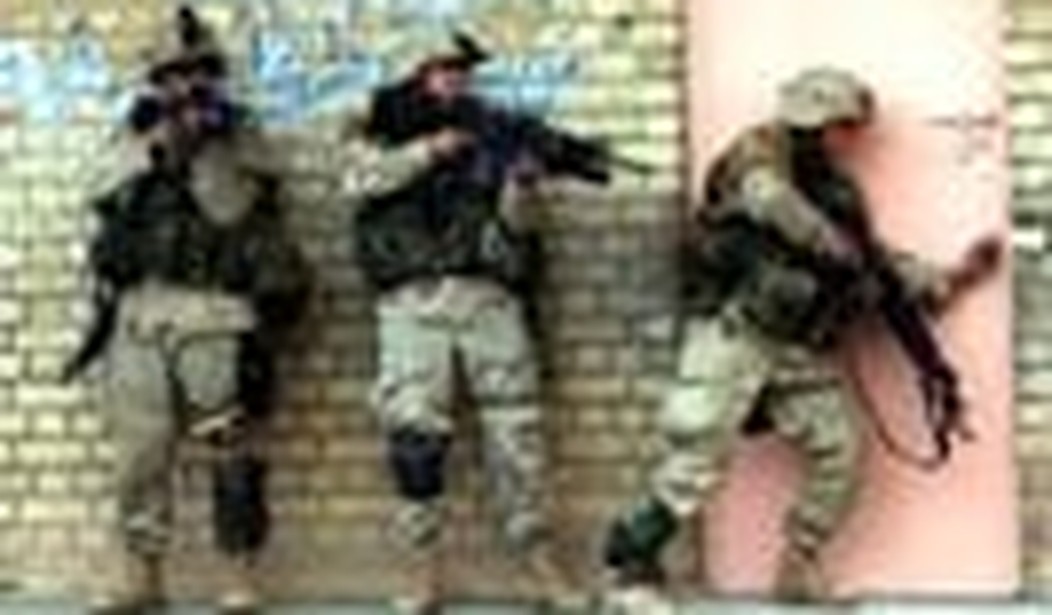“The US occupation forces must leave Iraq”, is a message Tehran has been repeating over and over again, since Washington sent its forces into Iraq in 2003.
The Iranian government’s stated opposition to the US presence in Iraq, on the surface at least, stems from a number of factors. One of them is genuine concern. Since the Bush government overthrew the Taliban regime in Afghanistan in 2001, and Saddam in 2003, the US armed forces, whom Tehran views as its most potent foe, has set up camp on Iran’s Eastern and Western borders. The regime in Tehran, is worried that these forces could be used in an attack against Iran’s nuclear program, or worst, to overthrow the regime.
This is why the Iranian government, with the help of the Islamic Revolutionary Guards Corp (IRGC) has been arming and training numerous Shiite militias inside Iraq. These militias, as well as fighting their Sunni rivals, have been attacking US forces, very often with deadly precision and impact.
In the war of words between Washington and Tehran, on numerous occasions, the White House has lambasted Tehran for its military assistance to the Shiite militias in Iraq. Some American politicians, including Senator Joseph Liberman, have gone further and accused Iran of having the blood of US soldiers on its hands.
However in a surprise turn of events, the State Department’s top official in Iraq declared on 23rd of December that Iran has decided “to rein in the violent Shiite militias it supports in Iraq, a move reflected in a sharp decrease in sophisticated roadside bomb attacks over the past several months”.
This is a very positive development for President Bush, whose administration has been desperate for some good news from Iraq.
The question is: why have the Iranians suddenly decided to help President Bush? After all, judging by the hostile words of Mahmoud Ahmadinejad, he would be one of the last people in the world with a desire to offer any support to the man who labeled his country part of the “Axis of Evil”.
The answer is: since the beginning of the revolution, there is a clear distinction to be made between the Iranian government’s words and it’s actions. In many cases, they have been known to be completely contradictory.
The repeated calls for the withdrawal of US forces from Iraq is the latest example. Although the Iranians say they would like America to up and leave tomorrow, the truth is that in reality, they want US forces to stay around for a number of reasons.
One reason is that as long as America is stuck in the mud of Iraq, the US military, and the American public are unlikely to have the political will to back yet another war — against Iran.
To ensure that US forces stay stuck in Iraq, yet are not strong enough to take on Iran, Tehran is assisting anti-US militants to engage in a long drawn-out war of attrition. However, when American casualties reach so high that calls for return of troops increase in Congress and the U.S. public intensify, Iran then suddenly reduces it support for the anti-US militia.
This is exactly what is taking place now. Therefore, Washington must not believe that Iran’s current strategy of reigning in the militias is a permanent or even long-term strategic decision by the Iranians. As soon as the level of US military confidence – and especially political influence in Iraq increases, it is likely that the Iranians will resume its support for the militias. This way, America will achieve Tehran’s goal of staying busy fighting the militias, without sufficient strength to take on Iran.
Another reason why Iran wants the US to stay is its antipathy towards Al Qaeda. Osama Bin Laden is not just an enemy of the US. He also hates Shiites. Many of his followers have taken part in numerous attacks against Shiites in Iraq, Pakistan and Afghanistan. Al Qaeda forces in Iraq have also publicly threatened Iran. Tehran is worried that if the US leaves, Al Qaeda will turn its hostility and its guns against Iran. Therefore, it serves Iran’s strategic interests to see US forces do Iran’s work of containing Al Qaeda in Iraq.
Last but not least, there is the question of business interests. Iranian government charity organizations, called Bonyads, as well as other government and private individuals have invested approximately $2 – $4 billion to date in Iraq, especially in Shiite areas.
Reportedly, one of the most active Bonyads in Iraq is Astane Qodse Razavi (holy gateway to Imam Reza). It is Iran’s biggest Bonyad, whose business ventures total $13 billion, equivalent to 7.1% of Iran’s total GDP. This Bonyad is headed by Ayatollah Vaez Tabasi, a current member of the Assembly of Experts, and a long-standing friend and business associate of supreme leader Ayatollah Khamenei.
Should US forces leave, it is very likely that much of his and other Iranian investments would go up in smoke in the ensuing violence and civil war. Therefore, the current presence of US forces in Iraq is in the economic interest of many of the powerful forces in Iran. The U.S. forces policing Iraq enables these billionaire Ayatollahs to continue making money in the lucrative Iraqi market for primary goods and real estate.
On the 5th of November 1979 , Ayatollah Khomeini, the founder of Iranian revolution, called the United States “The Great Satan”, and “a wounded snake”.
Although Khomeini died in 1989, Iran’s current leadership continues to view the US as a “snake”. And when it comes to Iraq, they will do what they can for the “snake” to stay – and to remain wounded -for as long as possible.
Meir Javedanfar is the co-author with Yossi Melman of “The Nuclear Sphinx of Tehran – Mahmoud Ahmadinejad and the State of Iran.” He runs Middle East Economic and Political Analysis (Meepas)









Join the conversation as a VIP Member